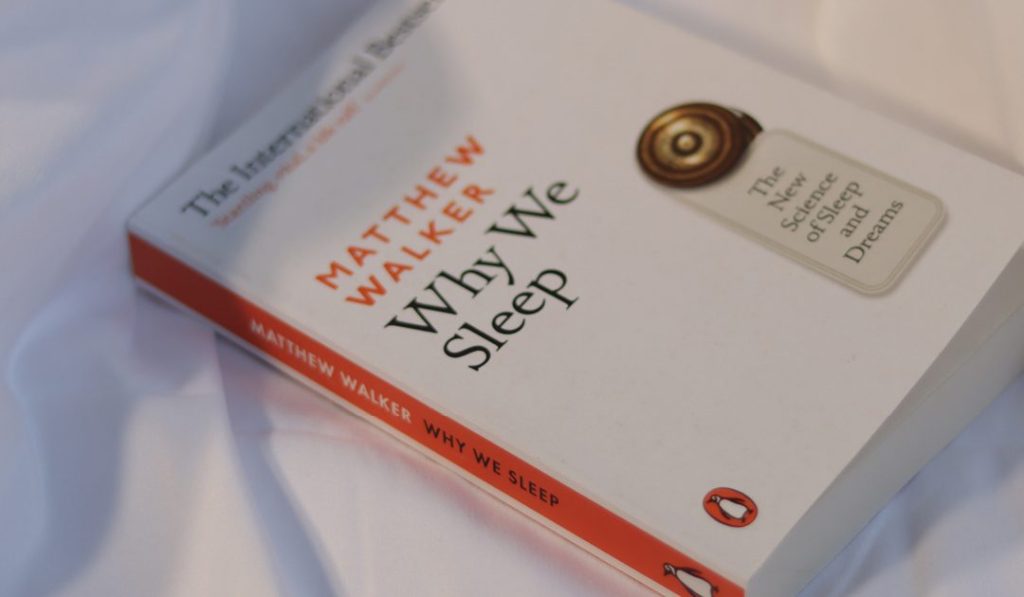At North Canberra Osteo, we understand the importance of quality sleep for overall health and wellbeing. In this post, we will share 12 actionable tips as adapted from the book ‘Why We Sleep’ by Mathew Walker, to help you create a healthy sleep routine and overcome common sleep disturbances.
- Create a sleep schedule and adhere to it: Choose a time to go to bed and to wake up at the same time each day, regardless of whether it is a weekday or a weekend. Sleeping more on the weekend will not make up for lost sleep during the week. Falling asleep is very habitual in nature and it can take time to adjust. A simple trick is to set a bedtime alarm as well as an alarm to wake up.
- Exercise can help with your sleep: 30 minutes is a good goal to try and reach every day. Avoid exercising 2-3 hours before your designated sleep time as this can affect the quality of your sleep.
- Avoid caffeine and nicotine: These chemicals take longer than 8 hours to fully leave your system. Allow this time to process your daily coffee or chocolate before bed. Nicotine is a stimulant and cause your quality of sleep to reduce.
- Alcoholic drinks may help you to relax but it affects the quality of your REM sleep: The main function of your REM sleep is to strengthen and create new neural connections based on your experiences from the previous day. Alcohol can have a significant impact on your breathing at night and once the effects wear off you often wake, further disrupting your sleep.
- Avoiding large meals that cause indigestion and large beverages that can cause frequent awakenings to urinate will help to avoid further disruption to your sleep: Try a light meal instead and avoid drinking 1-2 hours before going to bed. Indigestion in particular can cause sinus congestion and mucosal inflammation that restricts your airways at night and may cause you to wake with a blocked nose.
- Speak to your doctor about medications that could be affecting your sleep: Discuss changing or avoiding the medications or changing the time of day you take them. Examples include heart, blood pressure and asthma medications. Some over the counter and herbal remedies such as coughs, colds or allergies medications also disrupt sleep.
- Nap to make up for lost sleep but avoid napping after 3pm: Sleeping after 3pm can make it harder to fall asleep that night at bedtime.
- Avoid overscheduling your day and allow time to unwind: Have activities in your bedtime routine that are relaxing such as reading or listening.
- Use hot water, either a bath or a shower, to relax at the end of the day: The difference in body temperature from hot to cold will help you feel sleepy.
- Create the perfect sleeping space. This includes:
- Removing devices from the bedroom including powered alarm clocks, phones and televisions.
- Invest in some black-out curtains and remove all other lights in the room.
- Have a colder room (e.g. turn the heater or electric blanket off).
- Invest in a comfortable mattress, pillow and linen.
- Daylight is a key element to regulate your sleep: Make sure you get adequate sun exposure and natural light during the day. Waking when the sun gets up and exposing yourself to the morning sun can be the most helpful. Aim for 1 hour in the morning. At night you can also follow the opposite advise and turn bright lights down leading up to bedtime.
- Lastly, if you find yourself awake at night for 20 or more minutes, get out of bed and engage with an activity you find relaxing: This can be music or reading a book. When you begin to feel sleepy, go back to bed. It might take a few attempts to learn what is relaxing and what is stimulating. Avoid looking for your phone, even if it’s to put on a podcast or listen to music.
Sleep and breathing go together like night and day. If you’re struggling with sleep issues, consider having a breathing assessment done with one of our dedicated practitioners who can provide effective treatment. These assessments can be done in-person or via telehealth.
Developing healthy sleep patterns takes time and consistency and we’re here to support you on your journey to better sleep. By healing the breath during the day, we can help you sleep at night!
The North Canberra Osteo Team




